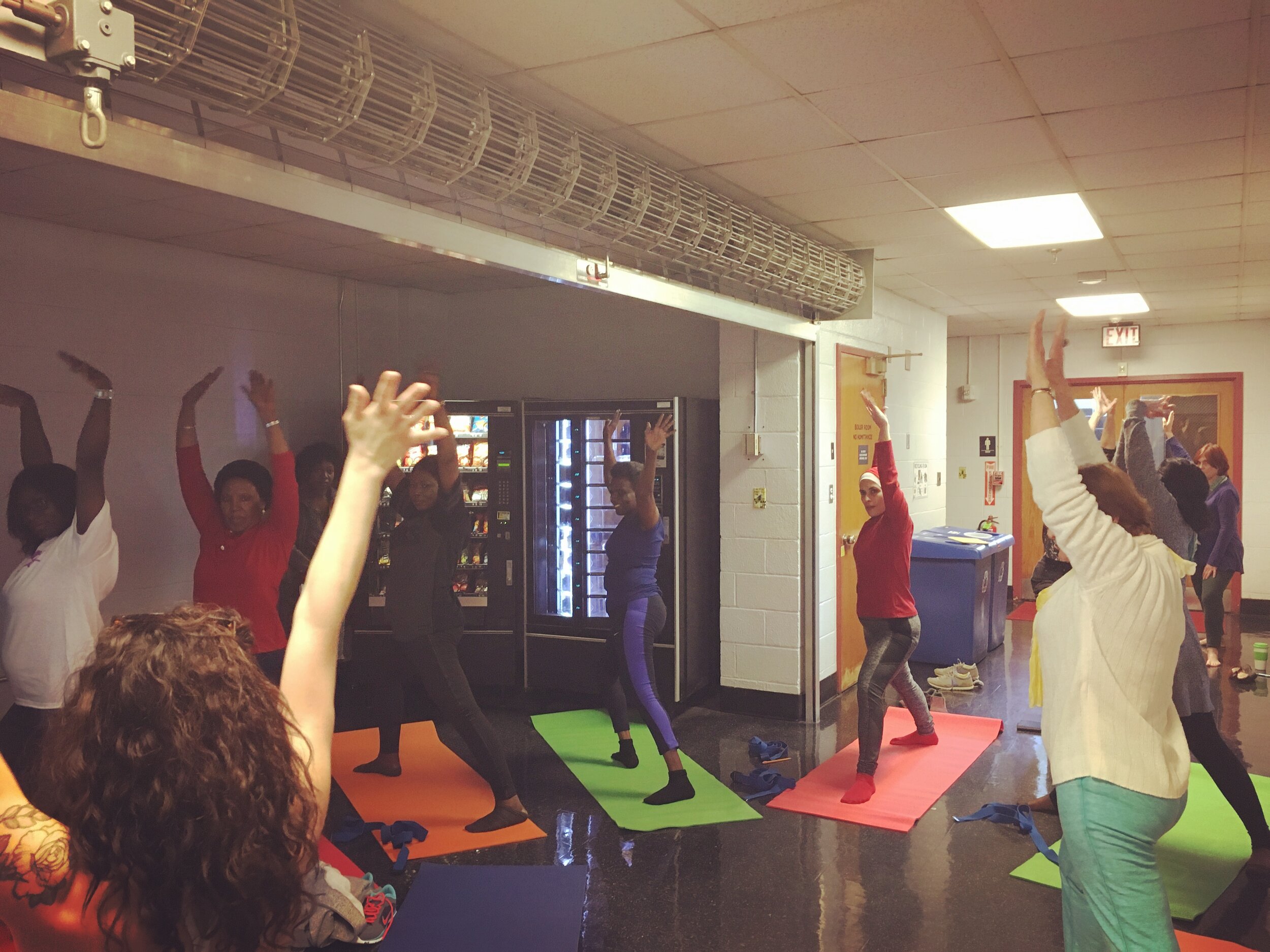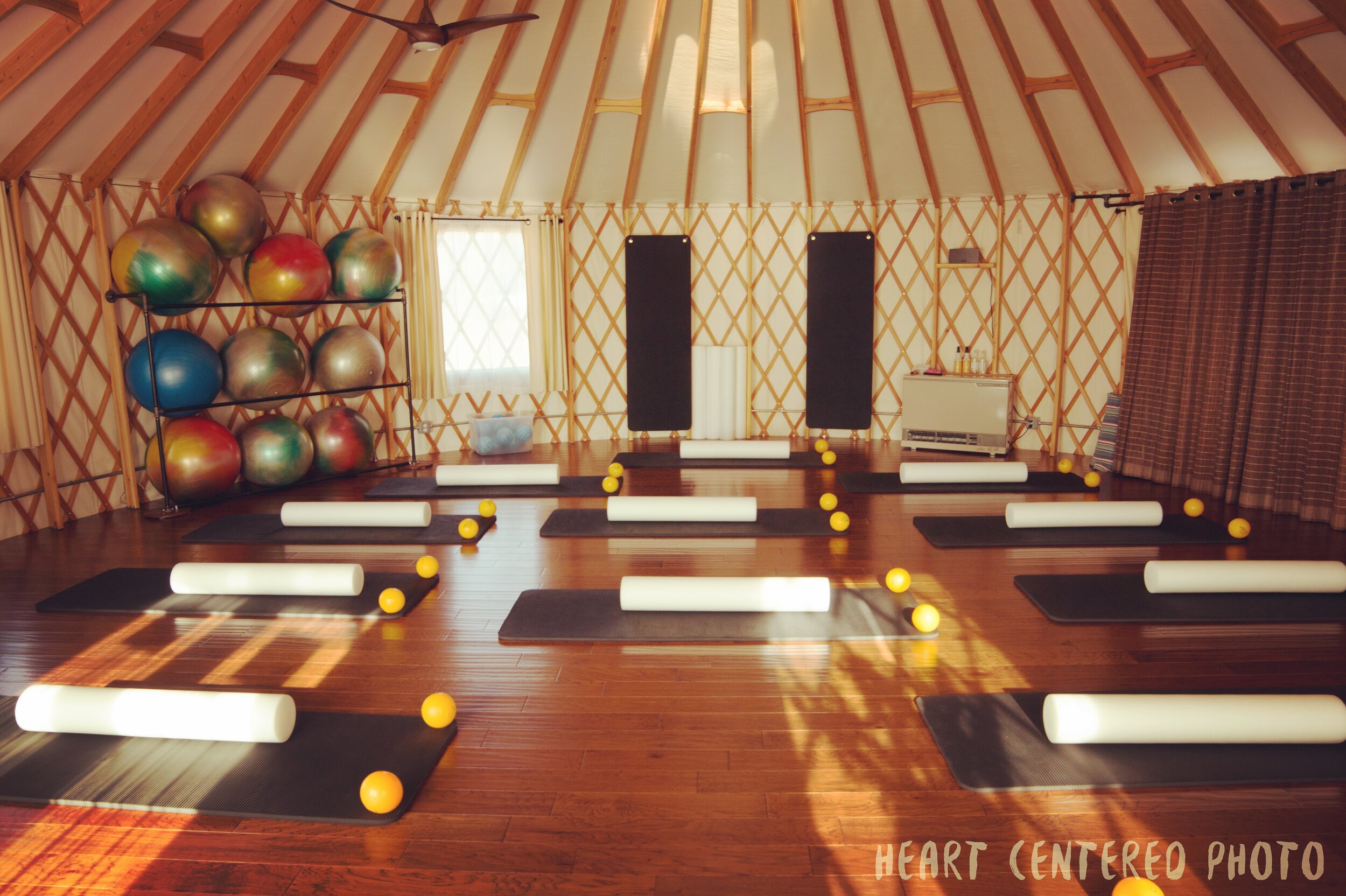Learning to Float
A friend asked me recently why I write, and I realized I had no idea. Which is a funny thing to say, when you've been teaching writing workshops all over town.
The thing is, why can be such a small question when it bumps up against processes that are messy and close. Why seeks linearity, explanations. When I go to the page, I have no idea how things will go, what actually lurks beneath the scratchy thing that got me there in the first place. Writing is discovery, trash heap, breezy porch, silver thread. Writing is connection.
Which is how I find myself, with 12 other women, on yoga mats in front of the campus vending machines on a Saturday morning.
We are a sea of spandex and tight cotton, warming up our bodies to tap into our creativity for a short unit I'm teaching on Embodied Writing, a practice I've developed that combines movement and breath with writing and (optional) sharing.
“So,” Claudette turns to me brightly, “Are we ready?” Claudette is one of the directors of In Her Presence, a group she co-founded to “help immigrant women grow their collective empowerment.” Each Saturday women gather in groups according to English language level, each in rich conversation on any number of topics: poetry, job applications, health, or U.S. history. I look out at the group.
"This isn’t school," I say. "You don’t have to worry about grammar or spelling. We'll give ourselves permission to play with writing, to see where we go." Someone says the word "permission" in Arabic. We talk about listening with reverence. A pause - does this word translate? Someone says in French, "Oui, just the same, révérence."
We have time for one prompt today: I remember. The room goes quiet with the scribbling of pencils, all of us bent over our notebooks, remembering. When it's time to share, Olivia (names changed), a grandmother from Iraq in a yellow scarf, declares, "Remember? What is this remember! We come here to FORGET." Celine, from Burundi, is talking about the contents of her fridge while Aya writes about talking to her mother this morning, still in Damascus. We listen and laugh or nod or sometimes weep, each of us moved, each of us recognizing ourselves in each other's stories.
There is a spark in these moments. Writing becomes a way of making ourselves known to ourselves and each other. We learn to do what we have always done: to be open and listening, to play and be curious, like children.
I have been doing these workshops all over town. At barns in Freeport and Flamenco Studios in Portland, with intellectually disabled adults at art centers, at yurts in Cumberland.
It doesn't seem to matter who we are or where we come from or how we think or what we believe. The common denominator is our bodies that contain our stories, and the mercy and exultation of creativity and witness.
So perhaps this is why I write, because it is so much like learning to float.
The swimmer discovers her own buoyancy not by curling and compressing - that posture will sink her - but in opening and releasing. In this tenderest place, we float. The water holds us when we trust it at our backs.



